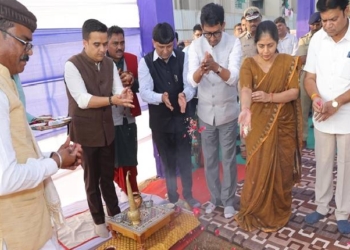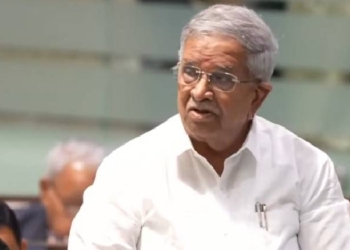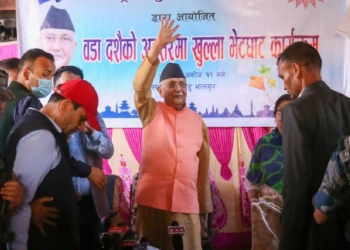Patna: Bihar’s Labour Resources Minister, Santosh Singh, on Wednesday strongly criticised AIMIM MP Asaduddin Owaisi over his remarks made in Lok Sabha regarding the Waqf Bill.
Owaisi had warned that if the Waqf Bill is passed in its current form, it could lead to social instability in the country.
“I am cautioning and warning this government. If the Narendra Modi government brings and makes a Waqf law in its present form, which will be a violation of Articles 25, 26 and 14, it will lead to social instability in this country. It has been rejected by the entire Muslim community. No Waqf property will be left, nothing will be left,” Owaisi said.
Hitting back, Singh accused Owaisi of attempting to instigate division asserting that India is a democracy, not a theocracy.
In a sharp rebuttal, Santosh Singh said: “Some countries claim to be run by Sharia law, but India runs on democracy – a democracy created by Babasaheb Dr Bhim Rao Ambedkar.”
He further argued that Ambedkar’s vision of democracy supports justice and fairness and that any wrongful occupation of land that hurts the sentiments of any community should be corrected.
“If someone has occupied something in an unfair manner and hurt another person’s soul, then that place should be returned with respect. This was Babasaheb Dr Bhim Rao Ambedkar’s thinking, and this is also the thinking of Narendra Modi’s government,” he said.
Taking a dig at Owaisi, Singh alleged that the AIMIM leader is trying to push for Pakistan-like ideology in India: “Owaisi wants India to become like Pakistan, but as long as Narendra Modi is here, this will never happen.”
Asaduddin Owaisi’s remarks on the Waqf Bill came amid increasing debates over religious properties and land disputes in India.
The ruling BJP has been pushing for reviewing and modifying Waqf-related laws, arguing that such regulations should be in line with constitutional principles rather than religious laws.
Singh’s aggressive response aligns with the BJP’s stance, reinforcing the party’s narrative of upholding democracy over religious influences in governance.
(IANS)
















